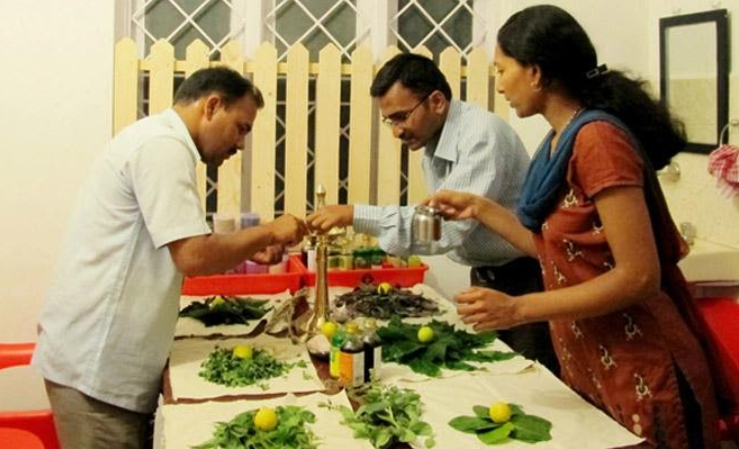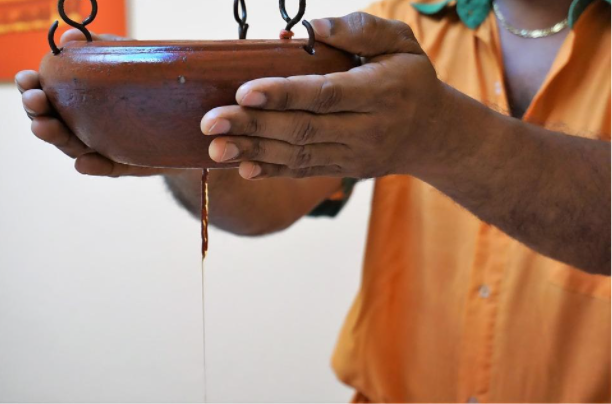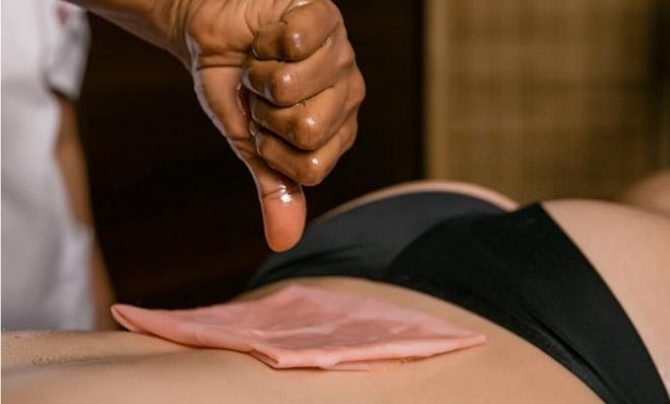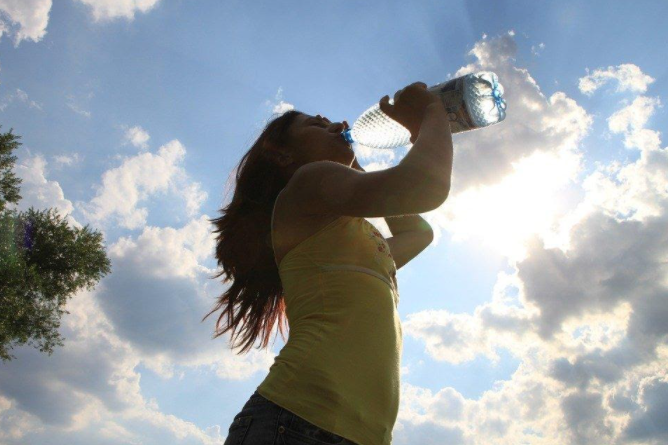Kidney stones are one of the most common and painful diseases of the urinary tract. The urgency of the problem and the need for effective treatment is determined by the increase in morbidity observed worldwide.
The ancient Indian science of health and longevity Ayurveda can help with kidney stones and strengthen your health.

What is the disease about?
The kidneys are an extremely important organ for the proper functioning of the body. In shape they resemble beans and are located on both sides of the spine, behind the abdomen.
The kidneys take care of the purification of the blood by removing unnecessary substances from the body in the urine. They are involved in the production of hormones, regulate the content of mineral salts. According to Ayurveda, the kidneys are the pitta organ and can be damaged by an imbalance of this dosha.
Kidney stones are a solid crystalline mass that accumulates inside the kidneys. They are formed as a result of the crystallization of minerals and waste in the urine, and can be found in the bladder and ureter.
The medical term for urinary tract stones is urolithiasis. Urine contains chemicals that form stones. When these chemicals do not balance each other, crystals are form.
As these grains of sand continue to grow, they form stones. They can be in the size of a pinhead and pass unnoticed in the urine, or be large, up to the size of an orange, while causing severe pain and bleeding, and can block the flow of urine.
This disease is known in Ayurveda as Vrukka Ashmari, and the ancient science of health can help a lot in its treatment.
Causes of kidney stones and symptoms
A common cause of kidney stones is dehydration or an imbalance in body fluids, which leads to a concentration of urine. Complications can also occur due to chronic urinary tract infections.
Some medications can make the situation worse, especially painkillers, as well as some metabolic diseases that can be hereditary. Other causes are hyperuricosuria and gout.
According to Ayurveda, improper diet and lifestyle lead to deterioration of the three doshas and cause the formation of toxins (ama) in the body.
They go down the channels through which urine passes, where the deteriorated doshas in combination with it cause its crystallization, which leads to the formation of kidney stones.
Here are some of the causes of kidney stones:
- Improper diet and sedentary lifestyle
- Excessive physical work
- Excessive consumption of alcoholic beverages and coffee
- Too much heavy, greasy, sweet and indigestible foods
- Insufficient intake of fresh vegetables, salts and alkaline foods
- Drinking too little water
- Diet high in meat and poultry
- Regular intake of drugs containing calcium, vitamin D preparations, ascorbic acid
- Suppression of the desire to urinate
- Sedentary way of life
Most people with kidney stones have no symptoms at first. The body tends to issue a warning even before pain occurs.
It is good to consult a doctor if you feel constant fatigue, suffer from headaches, you are more sleepy than usual, have a small need very often during the night, have swollen limbs and eyes.
Usually the first symptom is sudden, severe pain that occurs when urine is blocked by a stone and when it moves in the urinary tract, causing irritation.
It is characterized by the appearance of acute spasmodic pain in the lower back, pelvis or lower abdomen, spreading to the groin, often accompanied by nausea and vomiting, burning sensation, frequent urge to urinate, cloudy urine with an unpleasant odor and chills.
By its nature, the pain can be sharp and colic-like or dull and constant. Acute and sudden pain is also known as renal colic.
It can start suddenly after exercise or traveling by vehicle. Colic can also occur at rest, during sleep without other provoking factors.
How can Ayurveda help?
Ayurveda is an ancient science of health coming from the East. The Indian longevity system helps prevent general health and treat diseases, including kidney stones.
Ayurveda understands that it is better to take preventive measures than to wait until serious symptoms such as abnormal urine color and pain appear.
The early diagnosis offered by ancient Indian health science can be very helpful in preventing and treating kidney disease in the early stages of the disease. Late diagnosis is a prerequisite for aggravation of the disease and the formation of large stones.
The treatment of kidney stones in Ayurveda includes the use of diuretics, medicinal herbs, massages and other therapies.
Panchakarma therapy is an effective means of internal purification of the body, which stimulates the return of its strength. This is a therapeutic method in Ayurvedic medicine, which is associated with deep internal influences. The goal is to remove toxins from a specific part of the body after it has been prepared with Purvakarma therapies.
Panchakarma corrects metabolism and physiological processes, and the body gets rid of heavy metals, undigested food residues, radioactive agents, free radicals, toxic substances.
The therapy improves digestion, cellular functions and general health, including beneficial effects on the kidneys.
According to Indian doctors, the best results for the body are achieved by combining the healing methods of Ayurveda with detoxification procedures – Purvakarma and Panchakarma therapies, in compliance with healthy dietary rules. Many Ayurvedic therapies help remove toxins, stimulate tissues and relieve pain.
Diet is extremely important in case of kidney stones.
It is recommended to exclude a number of foods from the menu, such as:
- meat and meat products
- fish
- chicken
- eggs
- caviar
- bacon
- lard
It is also not desirable to consume :
- mushrooms
- garlic
- onions
- spinach
- potatoes
- tomatoes
- eggplants
- turnips
- Cauliflower
- hot peppers
During the winter season, do not be tempted by pickles. Black tea, coffee, soft drinks, cigarettes, alcohol and chocolate are also not recommended. Exclude hot and spicy spices such as black pepper, mustard, horseradish, mustard, hot red pepper from the spices.
It is recommended to reduce white wheat bread and salt, as well as to limit the use of dairy products, and if possible to exclude them at all.
The consumption of barley, ginger, brown and cooked rice is recommended. At the same time, be sure to drink enough water every day. Usually 1.5 to 2 liters of water a day are enough. Drink more fluids if you sweat a lot, work outdoors or in hot weather.
Teas containing:
- parsley
- coriander
- lemongrass
- corn hair
There are also herbal remedies that can help with kidney stones. These preparations are prepared from selected medicinal herbs in strict accordance with the principles of Ayurveda. All herbal medicines are 100 percent pure, natural and vegetarian, without chemicals, additives or preservatives and are safe to use.
Herbal medicines to support kidney stones
Cyston
Cyston is an Ayurvedic blend of herbs and minerals that naturally supports urinary tract health and helps maintain normal urine composition and mucosal integrity.
Cyston Forte
Cyston Forte is a powerful remedy for kidney stones. It is used to relieve pain and cramps caused by the disease.
Punarnava
Punarnava is used in the treatment of kidney disease, rheumatism, liver disease and others.
Be sure to consult a specialist before taking medicines.
The regime of rest and sleep is also of great importance for the recovery of the body. Provide enough sleep for the body to be able to regain its strength.
The health of the internal organs also depends on physical activity – walk in nature whenever you have the opportunity. Yoga and meditation are valuable weapons in promoting health and fighting disease.
Photos: ayurvedabansko.bg and pixabay.com





0 Comments